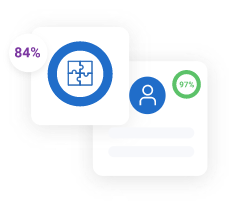Learn more about the program!
Fill in your contact information and we will get in touch as soon as possible.
Full Name |
Email |
Contact number |
Duration
1 Year
Language
English
Program Description
Students pursuing the Master in Special Education participate in extensive learning communities during this course. The program emphasizes collaboration and teamwork in classroom and clinical settings. Students can directly apply strategies learned in coursework with university and school-based supervisors and peers.
The Master in Special Education degree aligns with Idaho teaching certification.
The Master in Special Education degree aligns with Idaho teaching certification.
Entry Requirements

Are you eligible to apply?
Sign up, check the entry requirements, and find out your compatibility with the program.
Curriculum
Learning Outcomes
- Learner Development: The special education teacher, understands how learners grow and develop, recognizing that patterns of learning and development vary individually within and across the cognitive, linguistic, social, emotional, and physical areas, and designs and implements developmentally appropriate and challenging learning experiences.
- Learning Differences: The teacher uses an understanding of individual differences and diverse cultures and communities to ensure inclusive learning environments that enable each learner to meet high standards.
- Learning Environments: The special education teacher, works with others to create environments that support individual and collaborative learning, and that encourage positive social interactions, active engagement in learning, and self-motivation.
- Content Knowledge: The teacher understands the central concepts, tools of inquiry, and structures of the discipline(s) he or she teaches and creates learning experiences that make the discipline accessible and meaningful for learners to assure mastery of the content.
- Application of Content: The special education teacher, understands how to connect concepts and use differing perspectives to engage learners in critical thinking, creativity, and collaborative problem-solving related to authentic local and global issues.
- Assessment: The special education teacher, understands and uses multiple methods of assessment to engage learners in their own growth, monitor learner progress, and guide the teacher’s and learner’s decision-making.
- Planning for Instruction: The teacher plans instruction that supports every student in meeting rigorous learning goals by drawing upon knowledge of content areas, curriculum, cross-disciplinary skills, and pedagogy, as well as knowledge of learners and the community context.
- Instructional Strategies: The teacher understands and uses a variety of instructional strategies to encourage learners to develop a deep understanding of content areas and their connections, and to build skills to apply knowledge in meaningful ways.
- Professional Learning and Ethical Practice: The special education teacher, engages in ongoing professional learning and uses evidence to continually evaluate his/her practice, particularly the effects of his/her choices and actions on others (learners, families, other professionals, and the community), and adapts practice to meet the needs of each learner.
- Leadership and Collaboration: The special education teacher, seeks appropriate leadership roles and opportunities to take responsibility for student learning, to collaborate with learners, families, colleagues, other school professionals, and community members to ensure learner growth, and to advance the profession.
More
Need help applying to this program?
Schedule a free 20-minute counseling session today!